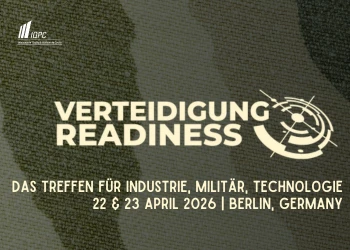COVID-19 & the Armed Forces: Lessons from Sierra Leone
Add bookmark
The UK’s COVID-19 response involves a myriad of stakeholders, including the Armed Forces who have been tasked with providing logistical support and strengthening the capacity of the NHS. I spoke with Lieutenant General James Bashall (Ret), former Commander Home Command, to get his perspective on the UK's resilience posture, the effectiveness of our current Military Aid to Civil Authorities (MACA) strategy and the past experiences of the Armed Forces in Sierra Leone during the Ebola outbreak.
Reflecting on the British Army’s participation during the Ebola outbreak in Africa in 2014, what lessons were learnt from that experience?
The UK military operation in Sierra Leone (Operation Gritrock) was the first time we deployed military force as part of a fully integrated overseas force. The operation was led in Sierra Leone by a DfID 2*, with MOD assets under command. It was a collaborative effort. The key lesson to emerge from the operation was the importance of cross-government planning at the Operational Level. Most cross-Whitehall planning is conducted in London; but in this case it was necessary for those deploying to Africa to plan together both in PJHQ and Africa.
The COVID-19 response has once again highlighted the need for good cross-government collaboration.
The operation highlighted – again – the importance of relationship building. MOD officers and DfID civil servants are often caricatured as being very different types of people; but shared exchange postings between the Departments has helped to break down perception barriers.
The COVID-19 response has once again highlighted the need for good cross-government collaboration; and for the MOD to place its people and assets under command of other departments. The key difference in Africa was the operation required consent of the Sierra Leonean Government, and Ebola was considerably more deadly than COVID-19. The deployed force had no authority over the people of Sierra Leone: we could only act as advisors and trainers.
Nevertheless, I doubt the British Army will have a global role in the COVID-19 crisis. As the threat has developed at home, the Army has taken on a number of logistical and medical roles. It has also provided a number of planning staff into Local Resilience Forums (LRFs). However, the numbers are low.
Involving the military in pandemic response in the past has also led to some criticism, particularly regarding the militarization of the civilian space, cost and potential cultural or policy clashes. What was the experience of the British Army in Sierra Leone? How successful was civil-military cooperation and interagency engagement?
The deployment of the British Military to West Africa, alongside US and French deployments in neighbouring countries was offered by politicians as a means to help stop the spread of Ebola which, by autumn 2014, was threatening to become exponential.
Civil-military cooperation was exceptional throughout the operation. DfID provided the vital links to the NGO community in country, and the military utilised its key capabilities to build hospitals and training centres. The key risk was the potential for personnel to become infected; which was covered by a specialist Casualty Evacuation. The other risk was the threat of the disease overwhelming the country; and the MOD also provided an emergency extraction capability offshore.
The concept and practice of resilience is always evolving and can mean a range of different things to different countries. What is your take on UK resilience and where should our focus be today?
Resilience itself needs to be defined. If we take it in this instance to mean the capability to respond to a crisis or threat, it is encapsulated in the idea of a contingency reserve capacity. Geography, politics and culture all play a huge part in different nations’ perspectives on resilience. In Japan, for example, resilience is focused on the threat of earthquakes, and the Japanese people are very stoical in managing hardship. Nature kills many more people every year than terrorism, and all countries with threats from earthquakes, flooding and typhoons have a particular focus on resilience just to survive.
I sense post COVID-19 there will be a greater focus on dealing with global threats, and this is likely to include greater resilience to protect ourselves against cyber threats.
In the UK, the Government maintains a central risk register of threats to our way of life. The main threat from nature is our weather. We sit on the edge of the European Mainland and face a constant stream of low pressures from the Atlantic, and flood resilience is the prime focus of the Environment Agency. There are also a wide range of other threats which spread from economic failure through to terrorism. Somewhere on the list is the threat of a biological pandemic. Flu sits on the list as annual threat, which is countered by spending resource an annual vaccination programme.
The challenge with all these threats is the balance between the likelihood of occurrence against the cost of maintaining prevention. It would appear reserves to counter a biological pandemic have been run down in recent years. I sense post COVID-19 there will be a greater focus on dealing with global threats, and this is likely to include greater resilience to protect ourselves against cyber threats.
What should the role of the UK Armed Forces be in strengthening resilience at the home front?
I think it is very difficult to be precise about the role. At present, the Armed Forces are tasked to provide specific roles to counter flooding, backfill tanker drivers, backfill prison staff and counter terrorist attacks. There are also other ongoing specialist tasks such as rendering safe Explosive Devices. These can range from legacy World War II bombs through to minor homemade devices. Finally, the MOD has tasks to assist with potential nuclear related accidents.
I don’t think the MACA concept will adapt; it has been proven to work over many years and against different scenarios. The barriers to success are always personality driven, which in part is cultural.
The key to the Armed Forces role is that they provide a guaranteed reserve. It doesn’t matter so much about the particular role; the Armed Forces will always offer the Government an option in a crisis. And this is particularly important now the majority of the Armed Forces are based in the UK. The UK taxpayer will expect to get value for money from Defence, and providing a reserve at home is just that.
Beyond that, there are likely to be specialised capabilities which will evolve to match new threats. I don’t think the MACA concept will adapt; it has been proven to work over many years and against different scenarios. The barriers to success are always personality driven, which in part is cultural.
Digital media plays a significant role in shaping public opinion during a crisis. How should the UK Armed Forces leverage social media and digital intelligence for resilience operations?
I think it is already doing so, and using social media to inform – and publicise – its activity. In the future there is considerable potential to leverage data to better inform and understand an emerging situation.
























